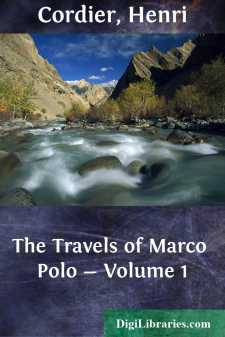Categories
- Antiques & Collectibles 13
- Architecture 36
- Art 48
- Bibles 22
- Biography & Autobiography 813
- Body, Mind & Spirit 142
- Business & Economics 28
- Children's Books 17
- Children's Fiction 14
- Computers 4
- Cooking 94
- Crafts & Hobbies 4
- Drama 346
- Education 46
- Family & Relationships 57
- Fiction 11829
- Games 19
- Gardening 17
- Health & Fitness 34
- History 1377
- House & Home 1
- Humor 147
- Juvenile Fiction 1873
- Juvenile Nonfiction 202
- Language Arts & Disciplines 88
- Law 16
- Literary Collections 686
- Literary Criticism 179
- Mathematics 13
- Medical 41
- Music 40
- Nature 179
- Non-Classifiable 1768
- Performing Arts 7
- Periodicals 1453
- Philosophy 64
- Photography 2
- Poetry 896
- Political Science 203
- Psychology 42
- Reference 154
- Religion 513
- Science 126
- Self-Help 84
- Social Science 81
- Sports & Recreation 34
- Study Aids 3
- Technology & Engineering 59
- Transportation 23
- Travel 463
- True Crime 29
Our website is made possible by displaying online advertisements to our visitors.
Please consider supporting us by disabling your ad blocker.
The Travels of Marco Polo - Volume 1
by: Henri Cordier
Description:
Excerpt
MEMOIR OF SIR HENRY YULE.
Henry Yule was the youngest son of Major William Yule, by his first wife, Elizabeth Paterson, and was born at Inveresk, in Midlothian, on 1st May, 1820. He was named after an aunt who, like Miss Ferrier's immortal heroine, owned a man's name.
On his father's side he came of a hardy agricultural stock,[1] improved by a graft from that highly-cultured tree, Rose of Kilravock.[2] Through his mother, a somewhat prosaic person herself, he inherited strains from Huguenot and Highland ancestry. There were recognisable traces of all these elements in Henry Yule, and as was well said by one of his oldest friends: "He was one of those curious racial compounds one finds on the east side of Scotland, in whom the hard Teutonic grit is sweetened by the artistic spirit of the more genial Celt."[3] His father, an officer of the Bengal army (born 1764, died 1839), was a man of cultivated tastes and enlightened mind, a good Persian and Arabic scholar, and possessed of much miscellaneous Oriental learning. During the latter years of his career in India, he served successively as Assistant Resident at the (then independent) courts of Lucknow[4] and Delhi. In the latter office his chief was the noble Ouchterlony. William Yule, together with his younger brother Udny,[5] returned home in 1806. "A recollection of their voyage was that they hailed an outward bound ship, somewhere off the Cape, through the trumpet: 'What news?' Answer: 'The King's mad, and Humfrey's beat Mendoza' (two celebrated prize-fighters and often matched). 'Nothing more?' 'Yes, Bonapart_y_'s made his Mother King of Holland!'
"Before his retirement, William Yule was offered the Lieut.-Governorship of St. Helena. Two of the detailed privileges of the office were residence at Longwood (afterwards the house of Napoleon), and the use of a certain number of the Company's slaves. Major Yule, who was a strong supporter of the anti-slavery cause till its triumph in 1834, often recalled both of these offers with amusement."[6]
William Yule was a man of generous chivalrous nature, who took large views of life, apt to be unfairly stigmatised as Radical in the narrow Tory reaction that prevailed in Scotland during the early years of the 19th century.[7] Devoid of literary ambition, he wrote much for his private pleasure, and his knowledge and library (rich in Persian and Arabic MSS.) were always placed freely at the service of his friends and correspondents, some of whom, such as Major C. Stewart and Mr. William Erskine, were more given to publication than himself. He never travelled without a little 8vo MS. of Hafiz, which often lay under his pillow. Major Yule's only printed work was a lithographed edition of the Apothegms of 'Ali, the son of Abu Talib, in the Arabic, with an old Persian version and an English translation interpolated by himself. "This was privately issued in 1832, when the Duchesse d'Angoulême was living at Edinburgh, and the little work was inscribed to her, with whom an accident of neighbourhood and her kindness to the Major's youngest child had brought him into relations of goodwill."[8]
Henry Yule's childhood was mainly spent at Inveresk....


